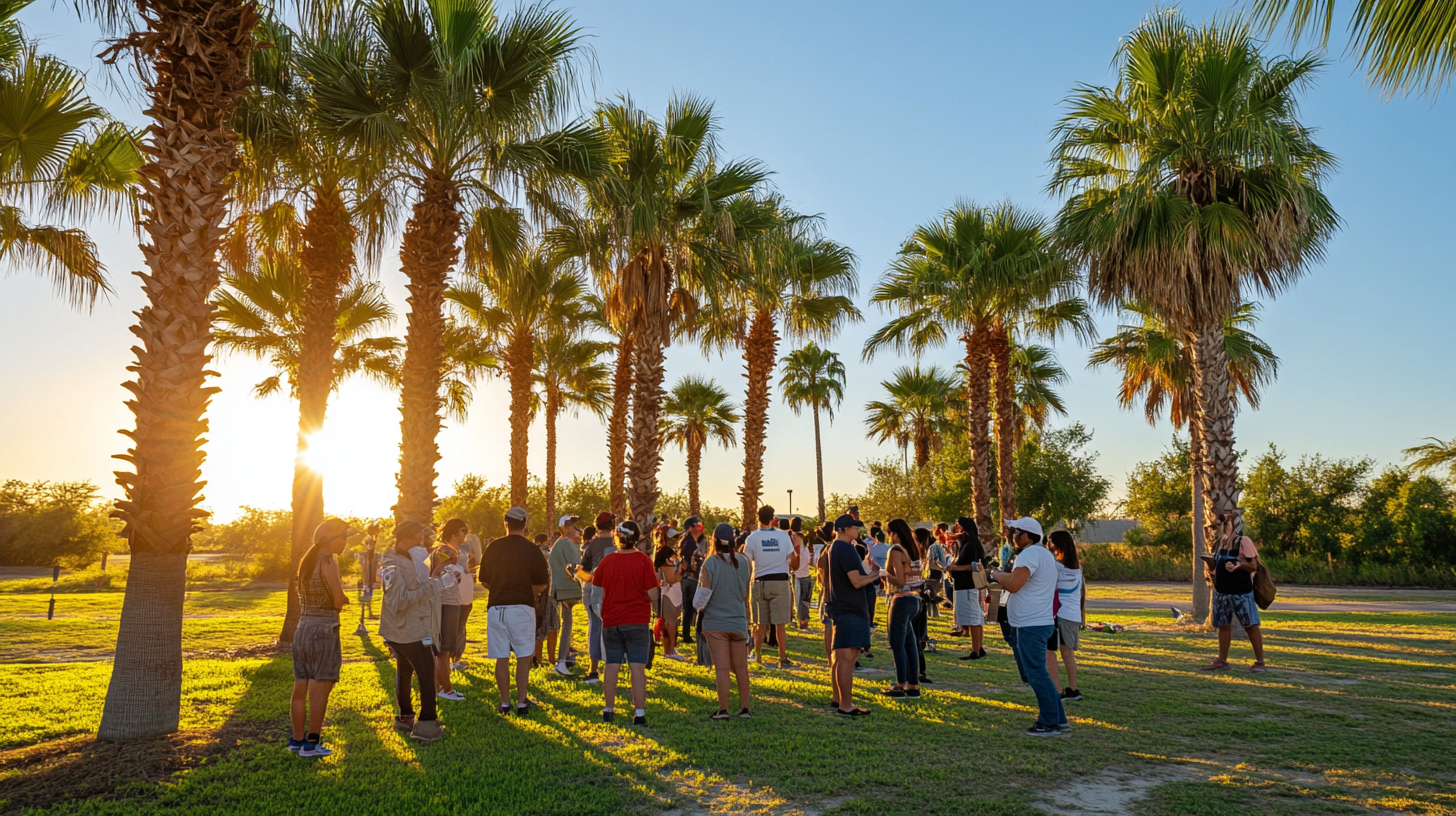Diabetes in South Texas: A Growing Crisis Demands Urgent Action
In a recent discussion covered by the Rio Grande Guardian’s “Ask the Expert” series, the severe prevalence of diabetes in South Texas emerges as a pressing concern for Valley residents. Sponsored by DHR Health, the piece sheds light on a critical issue facing the community: diabetes affects 1 in 3 to 1 in 4 adults in the region, significantly higher than the national average of 1 in 10.
The South Texas Diabetes Dilemma: Context and Causes
Diabetes has long plagued the Rio Grande Valley (RGV), but its reach is expanding alarmingly. Factors such as obesity rates and lifestyle habits have intertwined with this health crisis, creating a scenario where even children face a more aggressive form of type 2 diabetes than typically observed in adults.
Dr. Surya Narayan Mulukutla, an endocrinologist at DHR Health, voices urgent calls for prevention. “Focusing on lifestyle changes, like portion control, staying active, and healthier eating, is more crucial than ever,” he advises. Dr. Mulukutla emphasizes that these adjustments can dramatically impact diabetes management, steering efforts away from solely relying on medical treatment.
Unseen Epidemic: The Prevalence of Pre-diabetes
A staggering revelation is the number of Americans—nearly 100 million—living with pre-diabetes, with over 80% unaware of their condition. This statistic underscores a critical need for increased screening and awareness efforts, particularly in regions like South Texas, where cultural and lifestyle factors may exacerbate the issue.
“People often take their health for granted until it’s too late,” warns Dr. Mulukutla. “Screenings are essential because managing diabetes starts with knowing your health status.”
Local Impact: How Diabetes Shapes the Rio Grande Valley
The high incidence of diabetes in the Valley is more than a health crisis; it affects economic growth, education, and community wellbeing. The chronic nature of this disease has ripple effects, including higher healthcare costs and reduced productivity, both of which can hinder local development.
Moreover, diabetes-related health issues demand significant medical resources. DHR Health’s proactive stance in addressing these needs, including their innovative patient-focused approaches, serves as a vital local resource. With Dr. Mulukutla at the helm, patients are empowered to take charge of their health, engaged in plans that delve into root causes rather than just symptoms.
Connections to Past Efforts and Ongoing Challenges
The Rio Grande Valley has witnessed various health initiatives aimed at combating diabetes, reflecting a persistent battle against this pervasive health challenge. Past efforts have included public health campaigns and educational programs, yet the numbers indicate these have often fallen short, suggesting a need for more robust community engagement and resource allocation.
Policy maker Maria Gonzalez reflects on the persistent nature of this issue, sharing, “We’ve had numerous programs and campaigns over the years, yet the numbers tell us that more needs to be done. This is a call to action for everyone involved, from local governments to individual families.”
Future Implications and Prospects
Looking ahead, the implications of continued high diabetes rates are daunting. Without effective intervention and increased public awareness, the impact on public health infrastructure could intensify, stretching it thin.
On a hopeful note, continued efforts by health institutions like DHR Health, particularly their focus on cutting-edge technologies and patient involvement, may offer pathways to mitigate this crisis. Enhanced screening programs, combined with educational outreach, could serve as pivotal steps in reversing current trends.
Balancing Perspectives: A Community-Wide Effort
While Dr. Mulukutla champions prevention, others emphasize the role of community collaboration. Public Health Official Carlos Ramirez argues for a more holistic approach. “Addressing diabetes in the RGV is not just a medical issue; it’s about community wellness. We need schools, local businesses, and policymakers to join in this fight.”
The perspective acknowledges that while medical interventions are crucial, a community-wide effort involving various stakeholders may yield the most substantial impact, highlighting the multifaceted nature of diabetes as a community challenge.
Resources and Contact Information for Valley Residents
Valley residents seeking support or information on diabetes prevention and management can turn to DHR Health. For appointments with Dr. Surya Narayan Mulukutla, call (956) 362-5650. DHR Health accepts most insurance plans, including Medicaid and Medicare, ensuring broad accessibility to necessary care.
In a region defined by its resilience and community spirit, tackling diabetes head-on requires a unified commitment to healthier futures. As the RGV navigates these challenges, dedicated efforts like “Ask the Expert” reinforce the importance of informed, engaged action, ensuring that the health and prosperity of Valley residents remain a top priority.







